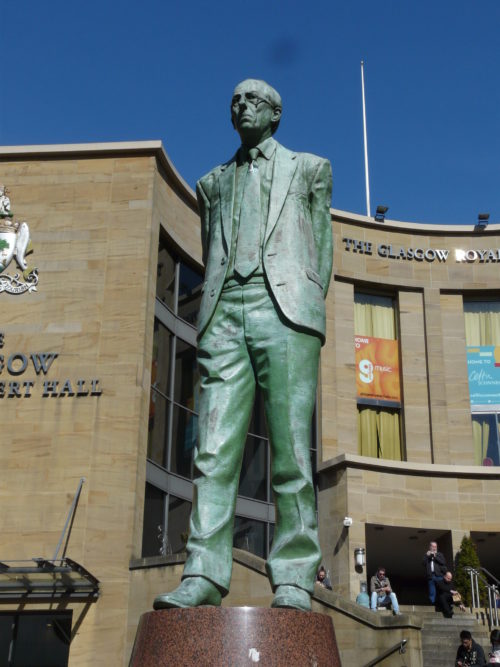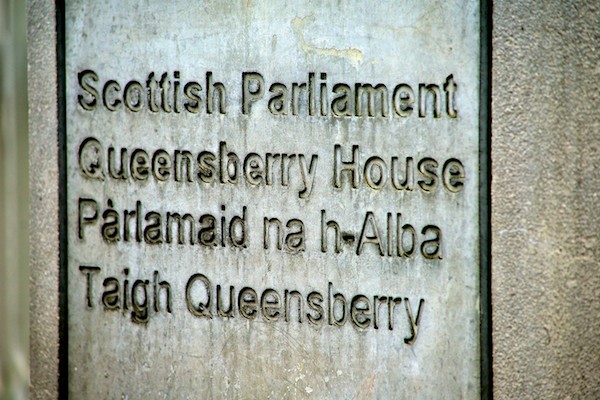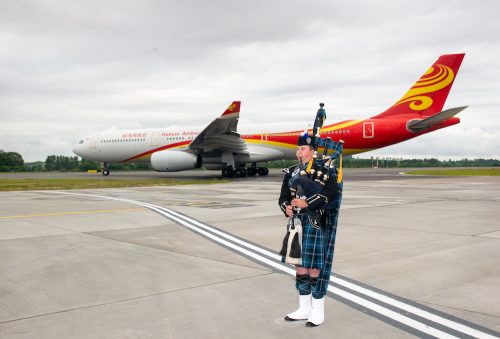Letter from Scotland
We have been delving into devolution this week. It’s 20 years since the first elections to the new Scottish Parliament. It seems a world away now. But as Sergeant Pepper said of his Lonely Hearts Club Band: “They’ve been going in and out of style, but they’re guaranteed to raise a smile.”

Donald Dewar was an unlikely
national leader. He was a dour Scottish solicitor whose first speech on being
elected an MP at Westminster was about the inefficiency of the potato tax. But,
almost single-handed, he persuaded the Labour Party to grant Scotland
semi-independent status, the first British experiment in devolution. His only hint of celebration – when the results of the 1997 referendum came
through – was to mutter “satisfactory, I think.”
And I suppose those three
words sum up the devolution experience over the last 20 years. We’ve been mulling over the achievements of
the Scottish Parliament – free-personal care, free university education,
national parks, the smoking ban. And this week we added: lifting the age of
criminal responsibility to 12. There
have, of course, been embarrassments and controversies – the new building
itself, the mini expenses scandals, the churn of party leaders, the failure to
solve big problems overnight – poverty, poor health, climate change, and the
fundamental issue of whether Scotland should go for complete independence. But progress has been “satisfactory” I think
most people would agree.

So far, The Scottish Parliament has played a minor role in the Brexit debate. But that’s not for want of trying. It’s passed resolutions calling for no Brexit and a second EU referendum and it’s pressed for the devolved governments to be involved in the Brexit talks. All to no avail. This week the parties have been launching their European manifestos. In just two weeks’ time we’ll know the results.
Scotland returns 6 MEPs to Brussels. At present, the SNP have two, Labour two, the Conservatives one and there’s one former UKIP member David Coburn. This time, the usual parties have been joined on the hustings by the new Brexit Party, the new Change Party and two independents. The Greens and the Liberal Democrats are hoping to win at least one seat each but there are so many unpredictables it’s hard to guess what the results will be.

This week, the SNP government
rather heroically followed through on its declaration last week of a “climate
change emergency.” It reversed a
manifesto promise to cut the air departure tax. The air industry was furious of
course and it blamed the sudden change of policy for Hainan Airlines’ decision
to axe the only direct flights between Scotland and China from September this
year.
Another “climate change”
decision was to introduce a return scheme for drink bottles and cans. The
details have still to be worked out but it will follow the practice of several
other countries. A deposit of, say 20p, will be charged on every bottle or can
bought but it will be refunded if the item is returned. One estimate says that 140,000 empty bottles and
cans will be recycled every day.
A disturbing report came out
of the BBC this week which found that police carrying fire-arms turned out to
5,250 incidents in the last year which did not require their use. The incidents included missing people, car
accidents and medical emergencies. The
community safety minister Ash Denham said it was not a move towards regular
armed police but simply that officers in armed response vehicles were nearest
to such incidents at the time. However
she did promise a review of the policy by the Police Authority.
Finally, another male bastion
is about to fall, the Highland Games.
Women are being allowed to compete in these traditionally male
competitions. In theory there will be
women’s races, hammer throwing and caber tossing from this summer onwards. It follows a meeting in Braemar of the
Scottish Highland Games Association which has been under pressure to
“democratise” from one of its main funders, the government agency Event
Scotland.
The Labour MSP Rhoda Grant,
who has been campaigning for the change, said: “It’s disappointing it’s taken
so long to reach this point…where women can compete on a level playing field at
Highland Games events.” Women may be
equal but there are not many level playing fields at the Highland Games I’ve
been to.